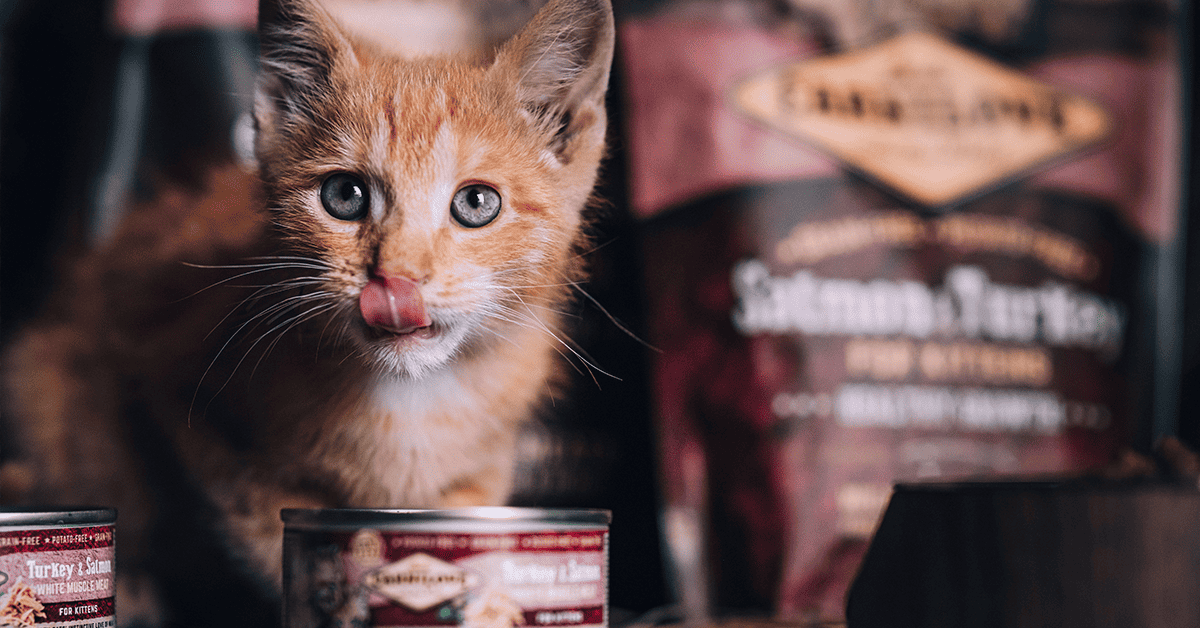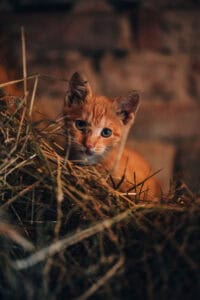
Learn all about feeding kittens with this guide! Learn when to start, how to choose the right food and much more, all helping to ensure your kitten grows up healthy and happy.
When Do You Start Feeding Kittens?
Kittens should solely be feed from their mother until they are at least four weeks old. This is an important stage in the kittens feeding journey where they will take in colostrum and antibodies from their mother’s milk which will protect the kitten from disease.
At around four weeks, many breeders or rescue centers will begin to introduce kittens to kitten food. This process should happen very gradually over a period of weeks until they are feeding freely from a bowl. Most kittens are fully weaned at around 8-10 weeks.
Always make sure you talk to the breeder or rehoming centre to find out their feeding routine. When you bring your new kitten home, try to keep to the same food and frequency of feeding for at least two weeks to minimise sudden changes which may cause stomach upset.
What to Feed Kittens at Different Growth Stages
It is important to feed kittens with food rich in quality proteins, fats, vitamins and essential nutrients for healthy growth and optimal body development. Kitten-specific foods are specially formulated to provide the higher energy and nutrient content needed to support their rapid growth and development. CARNILOVE Kitten Food has been formulated with respect for the natural composition of the feline diet.
The CARNILOVE dry kitten food recipe is based on salmon and turkey, sources of essential amino acids, which in combination with forests fruits, vegetables, and herbs provide essential nutrients, vitamins, minerals, and antioxidants every day for proper development of the skeleton, muscles, and natural immunity.
CARNILOVE Turkey & Salmon wet kitten food offers the texture of white muscle meat in a balanced holistic formula to satisfy your kittens instinctive love of meat. For those kittens that love gravy, CARNILOVE Rabbit rich in Marigold for kittens pouch offers a complete and balanced meal.
A good kitten food will support your kitten through their growth period until they reach adulthood. Carnilove recommends moving too an adult formula at 12 months old.
How Much Should You Feed a Kitten?

Young kittens have small stomachs and should be fed little and often. To start with your new feline family member will be fed at least four times per day, reducing down over a period of months to two meals per day at around 6 months old.
To calculate the daily feeding amount, it is best to look at the guidelines shown on the food packaging. For example a four month old kitten should receive 45g of Carnilove Salmon & Turkey Dry food divided into the required number of meals per day.
If you choose to also feed a complete wet food then the amount of dry food should be reduced in proportion.
It is a good idea to regularly weigh your kitten to ensure they are gaining weight at a steady pace. You should also keep an eye on their stools as this is a good digestive health indicator.
Wet Food vs. Dry Food: What’s Best for Kittens?
Cats can often be discerning connoisseurs of food with their own personal preferences. When considering what to feed your new kitten the format, wet or dry, is less important than the quality of the ingredients in the food. Ensuring the food you select is balanced, complete and rich in quality proteins, fats, vitamins and essential nutrients for healthy growth and optimal body development is key. Carnilove offers dry kibble, wet cans with white muscle meat texture or pouches of wild origin fillets in gravy to satisfy your kitten’s instinctive love of meat.
Is Milk Necessary for Kittens?
No! Mother’s milk is vital for newborns but is not necessary or beneficial for kittens once fully weaned. After weaning, stick to a complete kitten-appropriate food to support healthy growth and provide with fresh water at all times for hydration.
Common Mistakes to Avoid when Feeding Kittens
Overfeeding often results in excess gas and loose stools. It is important to feed a measured amount each day so you can easily adjust this slightly up or down as required by your cat.
Kittens can have sensitive stomachs too so owners are advised to stick to one food for kittens and avoid switching or changing foods where possible.
You should also take into account the amount of treats you are feeding your kitten throughout the day. Treats should not make up more than 10% of the kitten’s diet. Treats are not intended to be a complete diet for your kitten and therefore will not offer the balanced of nutrients that your kitten needs to grow healthy and strong. Ensuring the majority of their calories are taken from a complete and balanced food is important to support their wellbeing.
